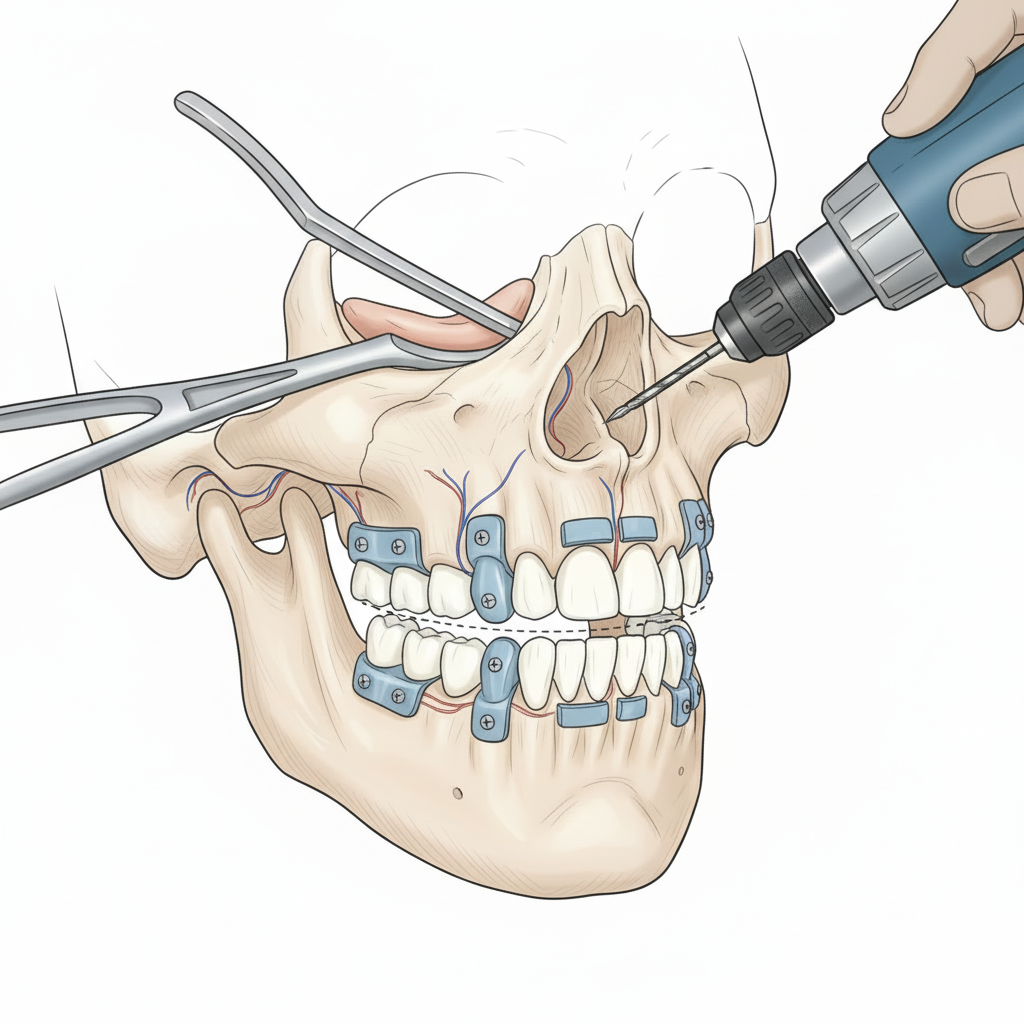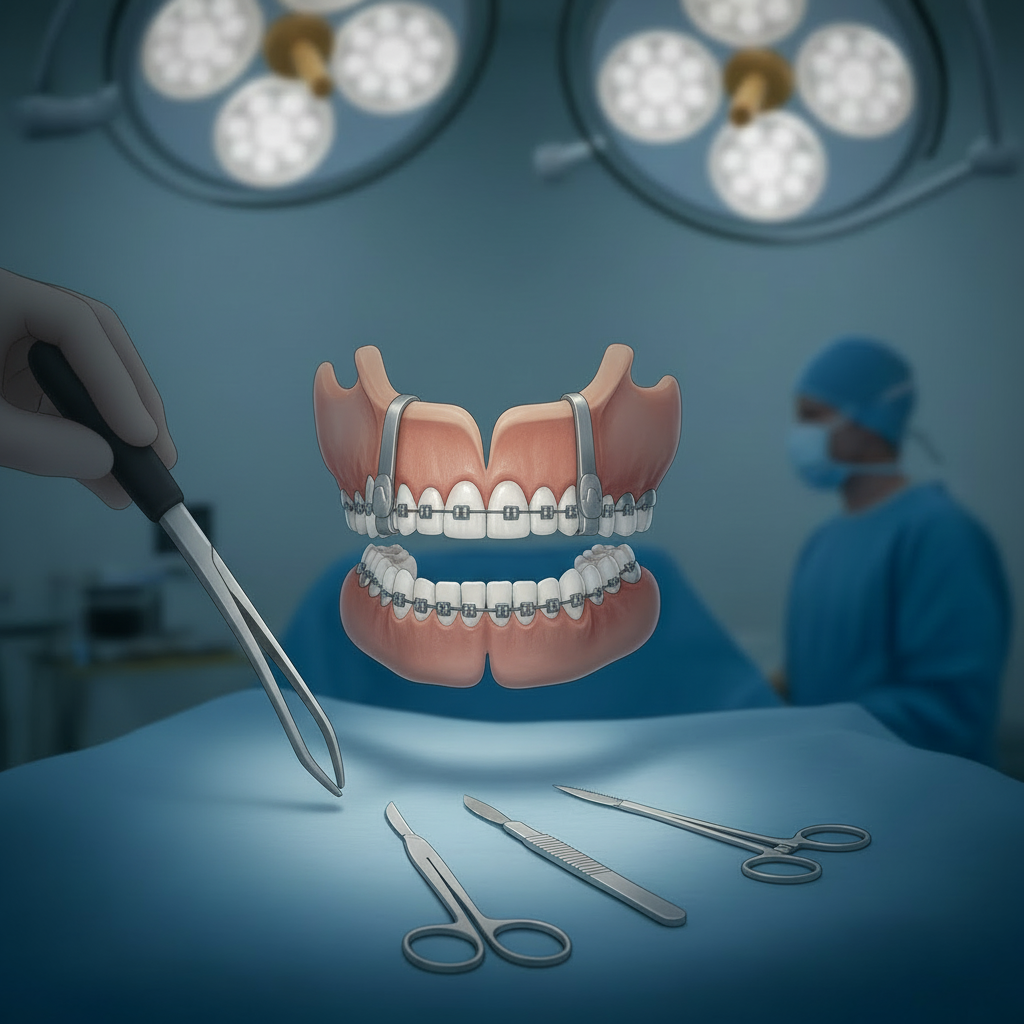When you hear the terms “oral surgery” and “maxillofacial surgery,” it’s easy to assume they refer to the same thing. After all, they both deal with issues related to the mouth, face, and jaw, right? While these fields overlap in many areas, they’re not identical. Understanding the differences is essential, especially if you’re a patient trying to determine the right specialist or a student exploring a career in healthcare.
This guide will break down the similarities and distinctions between oral surgery and maxillofacial surgery, their scope of practice, and when you might need each specialist.
Education and Training
Before diving into what these specialists do, it’s important to understand the path they take to earn their titles.
Oral Surgeons
Oral surgeons, also known as oral and maxillofacial surgeons in certain contexts, are dentists who complete additional training to specialize in surgical procedures related to the mouth, jaw, and surrounding structures. Their educational path involves:
- Earning a DDS (Doctor of Dental Surgery) or DMD (Doctor of Dental Medicine) from an accredited dental school.
- Completing a residency program in oral and maxillofacial surgery, which typically lasts 4 to 6 years. These programs involve clinical and hospital-based training.
- Some oral surgeons may pursue additional certifications, such as anesthesia training, to safely provide sedation during procedures.
Maxillofacial Surgeons
Maxillofacial surgeons are specialists who focus on treating a broader range of conditions involving not just the mouth and jaw but also the face, neck, and skull. Their education and training include:
- Dental or medical degree (or in many cases, both).
- Extensive surgical residency in maxillofacial and craniofacial procedures, usually lasting 4 to 6 years.
- Advanced training in complex facial reconstructions, treating facial trauma, and corrective jaw surgery.
While oral surgeons may focus solely on dental-related surgery, maxillofacial surgeons often handle more comprehensive cases involving the entire face and neck.
Scope of Practice
The scope of practice is where these two specialties diverge and overlap. Here’s an overview:
Oral Surgeons
Oral surgeons primarily perform procedures focused on the oral cavity and nearby structures, including:
- Tooth extractions (simple and complex, such as wisdom teeth removal).
- Dental implants placement to replace missing teeth.
- Treatment of oral infections or cysts.
- Biopsies for suspicious tissue in the mouth.
- Orthodontic surgery involving minor jaw corrections to aid alignment.
Maxillofacial Surgeons
Maxillofacial surgeons, on the other hand, address a wider range of issues extending beyond the oral cavity:
- Facial fractures repair due to accidents or trauma.
- Cleft palate and lip surgery for congenital abnormalities.
- Treatment for obstructive sleep apnea, often involving jaw repositioning.
- Cosmetic or reconstructive surgery, including reshaping facial structures or correcting deformities caused by injuries.
- Oncology treatment, such as removing tumors or cancer in the jaw, face, or neck.
Essentially, maxillofacial surgeons handle more complex issues that involve the interplay of multiple facial structures.
Overlapping Areas
Given the overlapping nature of their fields, there are scenarios where both oral and maxillofacial surgeons may perform similar procedures. For example:
- Both specialists are qualified to remove impacted wisdom teeth, although maxillofacial surgeons may step in for cases involving severe complications or jawbone damage.
- Dental implant placement is another shared procedure.
- Both often work together in multidisciplinary teams, especially when addressing advanced cases like facial trauma or dental-related tumors.
If you’re a patient, your specific case complexity often determines which specialist you’ll see.
When to See Each Specialist
Knowing whom to consult can feel confusing at first. To simplify, here’s a breakdown:
When to See an Oral Surgeon
- You need a simple tooth extraction or dental implant placement.
- You’re dealing with oral infections or a minor cyst.
- You require jaw alignment surgery for orthodontic reasons.
- A routine screen or biopsy identifies suspicious tissue in your oral cavity, and further evaluation is needed.
When to See a Maxillofacial Surgeon
- You’ve suffered facial trauma or injuries involving the jaw, cheekbones, or nasal structures.
- You or your child requires surgery for cleft palate/lip or other craniofacial deformities.
- You’re undergoing cosmetic or reconstructive surgery, such as correcting bone asymmetry.
- You have complex jaw misalignments, such as those requiring double-jaw surgery or addressing temporomandibular joint (TMJ) issues.
- You’ve been diagnosed with a head or neck tumor.
Your primary dentist or physician is typically the first step in identifying the right specialist. They’ll guide you based on your diagnosis and treatment needs.
Key Takeaways to Help You Decide
While oral and maxillofacial surgeries share common ground, the key distinctions come down to the complexity and location of the issue. If it’s focused on something within or near your mouth, an oral surgeon may be sufficient. But for anything involving the wider area of the face, head, or neck (or if additional expertise is required), a maxillofacial surgeon is usually the right choice.
Regardless of your specific needs, both are highly trained specialists committed to providing expert care.
Wondering which specialist is right for your case? Consult with your primary dentist or healthcare provider for personalized advice.





